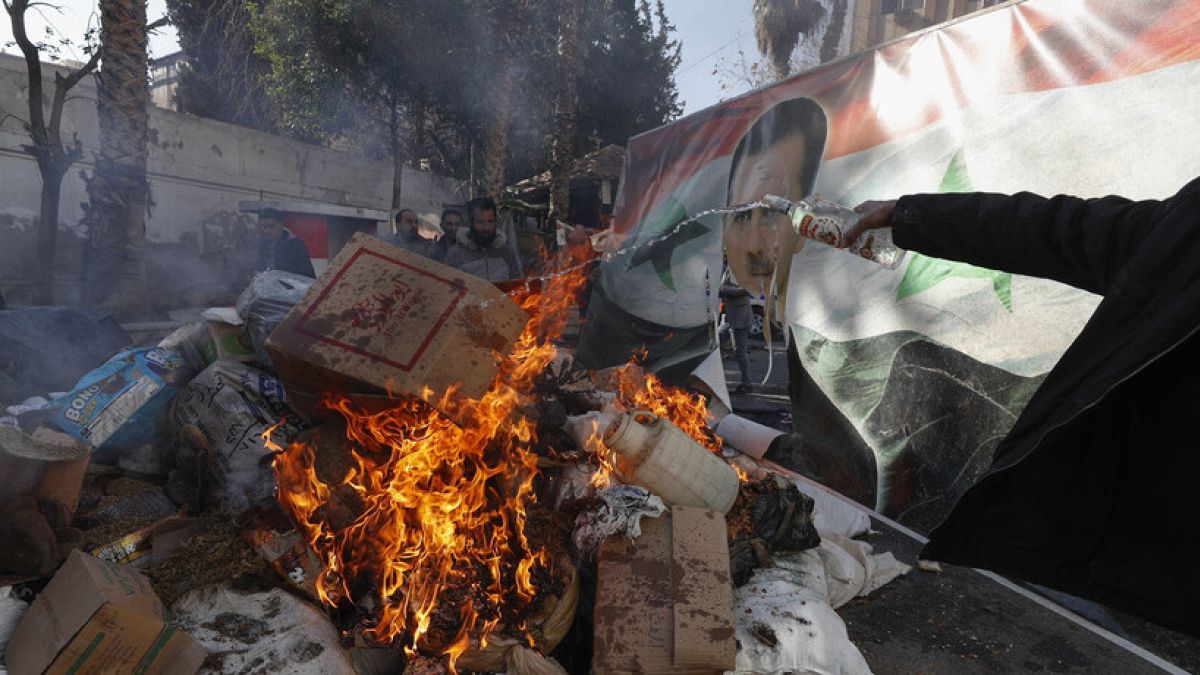Chinese leader Xi Jinping called on Thursday (6 April) for peace talks over Ukraine but added the “legitimate security concerns of all parties” should be accommodated, echoing Moscow’s arguments.
Visiting Beijing, together with EU Commission president Ursula von der Leyen, French president Emmanuel Macron, appealed to Xi to “bring Russia to its senses, and bring everyone back to the negotiating table.”
The Chinese leader, however, did not indicate if he would use his influence on Russian president Vladimir to enter into peace talks.
Xi and Putin had declared that their countries had a “no limits friendship” during the Chinese leader’s visit to Moscow.
“Peace talks should resume as soon as possible,” Xi said on Thursday, and called on other governments to avoid doing anything that might “make the crisis deteriorate or even get out of control,” AP reported.
On Thursday, the Chinese leader also said “legitimate security concerns of all parties” should be considered, echoing Moscow’s argument that it attacked Ukraine because of the eastward expansion of Nato.
Xi also said “a balanced, effective and sustainable European security architecture” should be fostered.
Beijing had earlier seemed to have wanted to appear neutral after Russia’s invasion of Ukraine, but has since given diplomatic support to Moscow, including Xi’s visit to Moscow last month.
China seems to want to position itself as a possible mediator between Russia and Ukraine, after China brokered a deal to restore relations between regional rivals Saudi Arabia and Iran.
Beijing proposed a 12-point peace plan last month that calls on both sides to agree to a gradual de-escalation leading to a comprehensive ceasefire. But the plan was mostly dismissed by the West due to China’s refusal to condemn Russia.
But China is seen in the West as favouring Russia, which it treats as a potential ally in opposing US domination in global affairs.
On the other hand, China would like to see Europe resist following US-led efforts to contain its global rise.
Deficits
For her part, von der Leyen said she encouraged Xi to call Ukrainian president Volodymyr Zelensky, and that the Chinese leader “reiterated his willingness to speak when conditions and time are right.”
The US and Nato have said China was considering sending arms to Russia, which Beijing denied.
The commission chief also warned China against sending military equipment to Russia. “Arming the aggressor is a clear violation of international law,” she said.
“This would indeed significantly harm the relationship between the EU and China,” von der Leyen stressed.
China is the biggest buyer of Russian oil and gas, which helps prop up the Kremlin’s revenue in the face of Western sanctions.
EU-China relations have soured over the years because of accusations of human rights abuses committed by China in Xinjiang province, putting EU companies in an unfavourable positions, and failing to condemn Russia’s Ukraine invasion.
A possible investment pact between the EU and China was shelved in 2021.
On Wednesday, Macron said Europe must resist “reducing trade and diplomatic ties” with China. He travelled to China with a 50-strong business delegation, Reuters reported.
The French and Chinese governments announced agreements on buying Europe’s Airbus aircraft, and opening a new assembly line in China, doubling Airbus’s capacity in the world’s second-largest aviation market. Airbus headquarters are in France.
In 2022, China was the third-largest partner for EU exports of goods (9.0 percent) and the largest partner for EU imports of goods (20.8 percent), with trade of more than €2.3bn daily.
However, the EU’s trade deficit with China has tripled over the last decade reaching almost €400bn last year.





















Discussion about this post